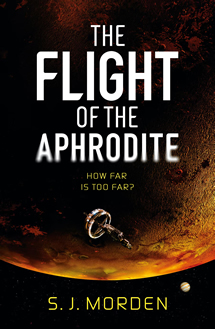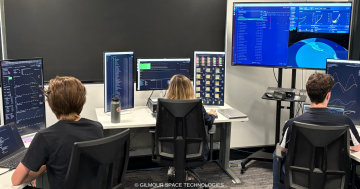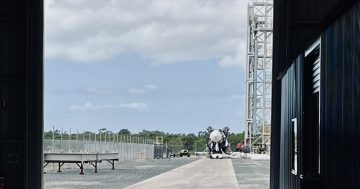Reviewed by Robert Goodman.
By SJ Morden, Hachette, $32.99.
 SJ Morden follows up his gritty space survival story Gallowglass with something both in the same vein and decidedly weirder. It features some of the side characters who appeared in Gallowglass and the ship that helped avert a global catastrophe. That ship, the Aphrodite, and a mainly new crew are now in orbit around Jupiter, part of a multi-year mission to explore the Jovian system, in particular its moons. But, as might be expected, it is not long before things start going wrong.
SJ Morden follows up his gritty space survival story Gallowglass with something both in the same vein and decidedly weirder. It features some of the side characters who appeared in Gallowglass and the ship that helped avert a global catastrophe. That ship, the Aphrodite, and a mainly new crew are now in orbit around Jupiter, part of a multi-year mission to explore the Jovian system, in particular its moons. But, as might be expected, it is not long before things start going wrong.
Flight of the Aphrodite starts with tension. In order to survive, supply vessels called Nimbuses preceded the Aphrodite to Jupiter’s orbit. However, the first Nimbus they are to rendezvous with has degraded and it takes some ingenuity to capture it. Adding to that tension is the fact that Captain Marriuci feels like he is starting to lose his memory and his medical officer admits to him that she is seeing ghosts of people who died under her hand. As the mental health of the crew starts to significantly deteriorate, they make a discovery that could change our understanding of the universe. Only the chief scientist on board refuses to believe it as it upends his own personal view of cosmology and uses the captain’s condition and the ambiguity of the find to pursue his own, egotistical and monomaniacal agenda. Meanwhile, the climate emergency that the crew left behind is getting much worse, making the crew wonder what sort of Earth they might be returning to.
Flight of the Aphrodite feels like a cross between Event Horizon and 2001: A Space Odyssey. There is body horror and eldritch discoveries in the context of a well realised space mission. As in Gallowglass, Morden really leans in to considering what happens to a small group of people with limited supplies stranded millions of kilometres from Earth and the difficult decisions they have to make when things start to go wrong. But also the way in which small groups of people, particularly those experiencing significant mental stresses, can be manipulated. Flight of the Aphrodite deals with some big picture science fiction concepts and ideas but never loses sight of the humans at the centre of its drama.
Morden’s science fiction has consistently had this element of grittiness to it, a feel that he is capturing what living in a glorified tin can far from home or help might be like. But this is the first to also introduce something bigger. Morden does not present any answers, just a grand mystery which in the universe he has created may never be solved. Because the focus is not on the mystery itself but how its very existence impacts on the crew. And that is what makes this book tantalising, frustrating and exciting.
Over 750 more reviews can be found on Pile by the Bed.











